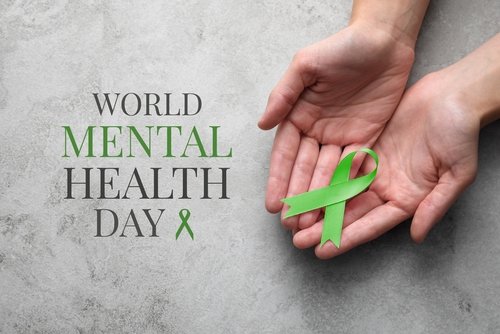Belgium (Brussels Morning newspaper), Like every year, World Mental Health Day is an occasion to put the spotlight on the importance of mental health; it represents an opportunity to reflect on ways to improve knowledge, raise awareness and drive actions that address all aspects of mental health.
This year’s Day focuses on the need to secure the highest attainable standard of mental health as a basic human right for all people. As underlined by the WHO, this includes the right to be protected from mental health risks, the right to available, accessible, acceptable, and good quality care, and the right to freedom, independence and inclusion in the community.
In the EU, mental ill health affects more than one in six people in any given year. In many cases, this has a negative impact on people’s physical health, well-being, families, social relationships and employment.
Certain societal groups are more vulnerable to being affected by mental ill health; people living with severe chronic or life-threatening conditions should be considered as such – including those living with a rare disease. Mental ill health can be a ‘hidden’ but important co-morbidity in these conditions.
A recent inquiry clearly identified mental health as a key issue facing rare disease patients and their carers. It found that living with a rare condition can ‘have a huge impact, including anxiety, stress, low mood, emotional exhaustion and suicidal thoughts’.
It also found that ‘Many of the drivers of poor mental health reflect issues that are specific to managing a condition that is rare, and that patients/carers face challenges at many points during their journey from the onset of symptoms onwards’. Moreover, in many cases, patients and carers do not feel taken seriously by healthcare professionals when talking about the mental health burden of their situation.
A survey, carried out by Eurordis in 2017, found that 37% of people affected by a rare disease experience unhappiness and depression – more than three times higher than the general population.
According to a 2021 United Nations Resolution, people living with a rare disease and their families are living with a ‘greater risk of being disproportionately affected by stigma, discrimination and social exclusion’ and are ‘disproportionally affected by poverty, discrimination and lack of decent work and employment’.
There is also evidence demonstrating the link between physical health and mental well-being, with a correlation between the severity and complexity of a physical medical condition. Psycho-social vulnerability is higher in these populations.
Phenylketonuria (PKU) is a concrete example of a rare disease where mental health plays a crucial role. People living with PKU cannot metabolise a certain protein in their diet and, if left untreated, this can cause severe intellectual disability as well as neurological, mental health and behavioural problems.
The standard treatment of PKU consists of a strict diet, which allows those affected minimal amounts of natural protein per day (the equivalent of one glass of milk only); ‘normal’ foods are strictly out of bounds.
It is obvious that adhering to such a strict and ‘anti-social’ diet poses important problems to patients, families and carers. Few individuals can maintain indispensable dietary control throughout life. However, even with good control, there is a higher risk of mood, anxiety, and attentional disorders across the lifespan.
Apart from the diet, there are other mental health aspects: if left untreated, PKU can result in intellectual disability, with hyperactive behaviour and autistic features.
Also, studies report low mood and depression more frequently in people living with PKU. Children and young people with PKU have difficulty maintaining focus and experience educational challenges as well as anxiety or depression. In addition, 51% described social exclusion and problematic relationships.
Caregivers or parents of children with PKU also showed significant mental health and general health issues as well as negative impacts on social and work life. Furthermore, people living with PKU commonly report requiring access to psychological and psychiatric services., and psychiatric illness is ‘very common’ in adult PKU populations.
The European Commission has recently published its comprehensive approach to mental health. The UN has called for the development of effective programmes to promote mental health and psychosocial support for persons living with a rare disease and coordinate EU action to develop and promote policies and programmes that enhance the well-being of their families and caregivers.
The WHO has updated its Mental Health Action Plan 2013-2030, with the aim to promote mental health and well-being for all, to prevent mental health conditions for those at risk and to achieve universal coverage for mental health services.
Let’s ensure that these initiatives are truly comprehensive and do not overlook the challenges faced by people living with a rare disease and their families.




